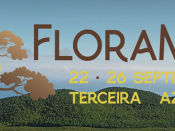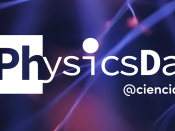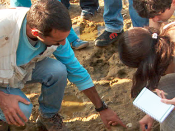Por Pedro Pinto (Technische Universität Darmstadt).
Proof mining is the research program that employs proof-theoretical techniques to obtain new information from noneffective mathematical theorems [1]. Such new information may be of a quantitative nature (like rates of convergence, etc.) or of a qualitative nature (generalizations, independence on parameters, etc.). With the work of U. Kohlenbach and his collaborators, in the last 25 years this program has been successfully applied in a systematic way to various areas of mathematics, especially in the field of nonlinear analysis. However, at the moment there is a single study of results in the context of PDE theory [2]. Recent developments regarding a suitable formalization of monotone (accretive) set-valued maps in Hilbert (Banach) spaces due to N. Pischke [3] have allowed for a clear formal understanding of these types of maps and opened up proof mining to applications on a new class of results.
In this talk, we will discuss the asymptotic behavior of nonlinear semigroups generated by an accretive operator through the proof mining study of results due to O. Nevanlinna and S. Reich [4] as well as H.-K. Xu [5]. These results consider a particularly interesting condition on the underlying operator introduced by A. Pazy [6] under the name of ‘convergence condition’. We derive various notions of a ‘convergence condition with modulus’ which provide quantitative information on this condition of a varying computational strength. These notions then allow for the extraction of quantitative information on the convergence results of Nevanlinna and Reich as well as Xu in the form of rates of convergence. This talk is based on ongoing joint work [7] with Nicholas Pischke.
References:
- [1] U. Kohlenbach, Applied proof theory: proof interpretations and their use in mathematics. Springer Monographs in Mathematics. Springer-Verlag Berlin Heidelberg, 2008.
- [2] U. Kohlenbach, and A. Koutsoukou-Argyraki, Rates of convergence and metastability for abstract Cauchy problems generated by accretive operators, Journal of Mathematical Analysis and Applications, 423:10891112, 2015.
- [3] N. Pischke, Logical Metatheorems for Accretive and (Generalized) Monotone Set-Valued Operators, Submitted, arXiv:2205.01788, 2022.
- [4] O. Nevanlinna and S. Reich, Strong convergence of contraction semigroups and of iterative methods for accretive operators in Banach spaces, Israel Journal of Mathematics, 32:4458, 1979.
- [5] H.-K. Xu, Strong asymptotic behavior of almost-orbits of nonlinear semigroups, Nonlinear Analysis: Theory, Methods & Applications, 46(1):135151, 2001.
- [6] A. Pazy, Strong convergence of semigroups on nonlinear contractions in Hilbert space, Journal of Mathematical Analysis and Applications, 34:135, 1978.
- [7] P. Pinto and N. Pischke, On the asymptotic behavior of Cauchy problems generated by an accretive operator, 2022.
Online broadcast | Meeting ID: 837 8989 1971

























